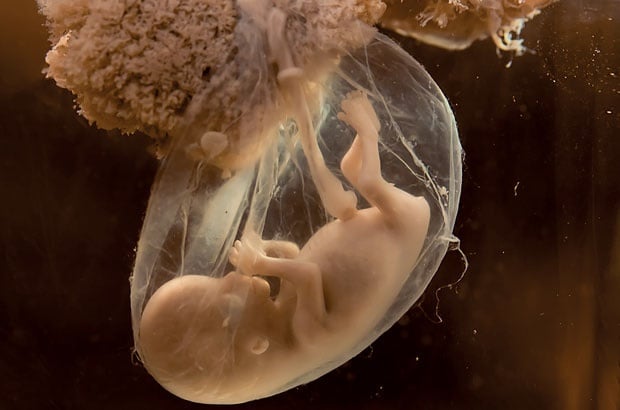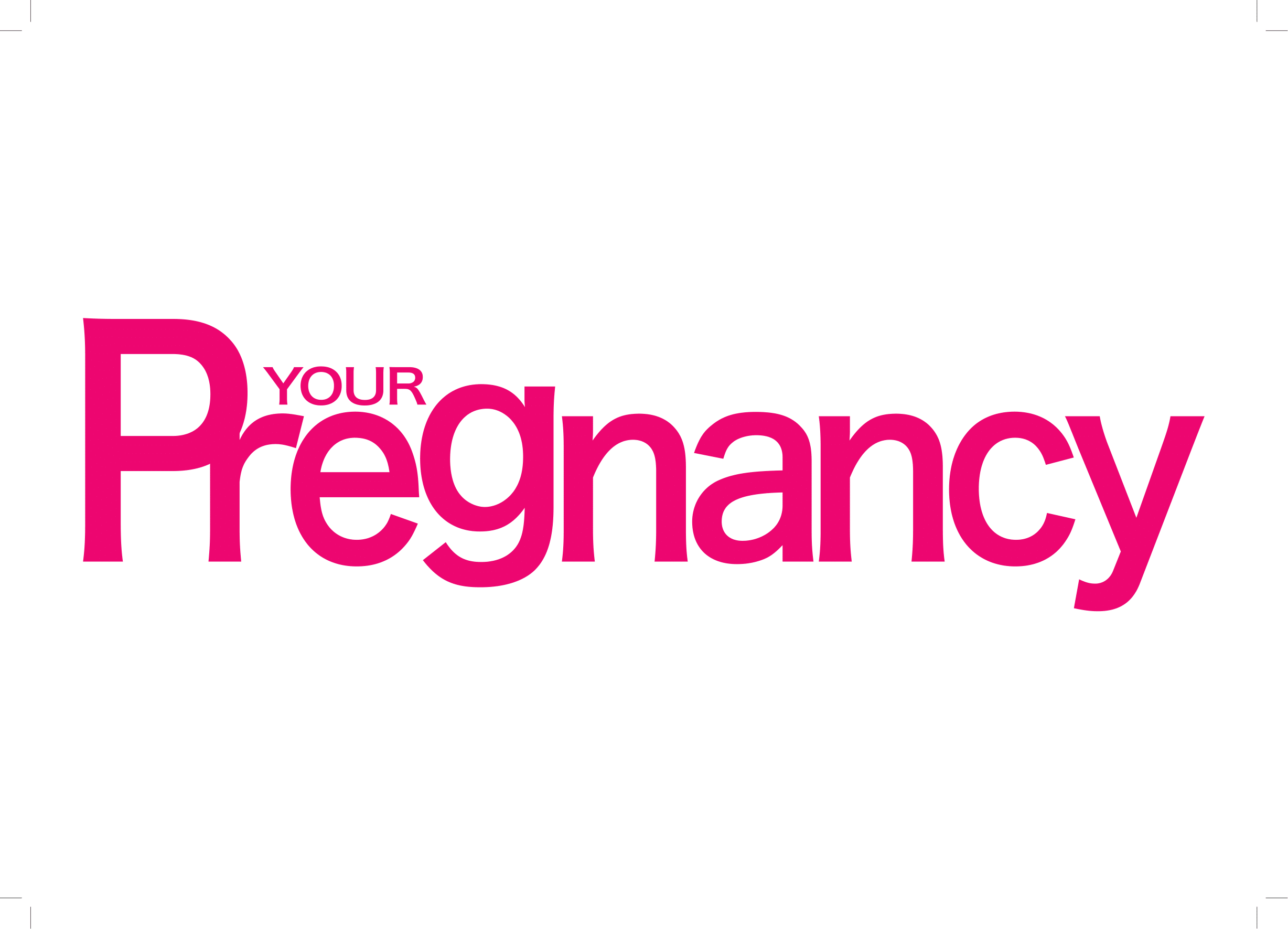
This article first appeared in the August/September 2017 issue of Your Pregnancy magazine.
1. A big little heart
The statistics for the development of the heart of a foetus will have any prospective mom beaming from ear to ear. Dr Marise Pretorius, a gynaecologist at the University of the Free State, says even though we can’t see it on a sonar, a foetus’ heart starts beating at 22 days (when it’s still only an embryo measuring 1.25mm). “Most of your baby’s organs develop between weeks four and eight. By the seventh week your foetus already has a heart with four chambers like that of an adult,” she says. At first the little heart puts out 20 to 25 beats per minute, but by nine weeks it reaches a top speed of 157 beats per minute. And by week 17, it pumps 24 litres of blood per day.
2. Hear, hear! Your foetus's little ears
By 18 weeks your foetus can identify sounds and even get a fright from loud ones. Dr Wynand van Tonder, a Joburg-based gynae, explains that they used to test foetal movement by placing a kind of alarm clock on the mom’s belly and checking how the baby reacts to the vibrations once the alarm goes off. “But we don’t do that anymore, because modern technology has shown us that the sound is too intense,” he says.
Research has shown that the heartbeat of the foetus slows down when she hears her mom’s voice. The assumption is that even before the birth mom has a calming effect on the baby. “She identifies with the sounds she hears most, and that’s your voice, followed by her dad’s,” he adds.
- Also see: Pregnancy week-by-week updates
3. Girl or boy?
A baby’s sex is determined at conception, depending if an X or a Y chromosome sperm fertilises the egg, even if babies look roughly the same at six weeks, Dr Pretorius explains. Baby girls and boys have identical nodules, but with boys it becomes a penis and with girls a clitoris. The sex organs start working from the get-go: A boy’s testicles produce testosterone and a girl’s ovaries produce eggs. The eggs with which your daughter is born will be used to ovulate one day.
4. Forty winks: When your foetus sleeps
By the third trimester your baby is asleep between 60% and 70% of the time. And once she’s nodded off, not much will wake her up. “Your baby also tosses and turns in her sleep, just like you do,” Dr Pretorius says. “Usually she has an awake-sleep pattern of 40 minutes. This means most babies sleep about 40 minutes, are awake for 10 minutes or longer, and then fall asleep again.”
Dr Van Tonder says both the awake and asleep times are important. “Rest is essential for the cells to grow, and the awake times are of cardinal importance for the development of muscles and the nervous system.” Research shows signs of REM sleep in the last few weeks before birth, which is a possible indicator that baby already has the capacity to dream. If that is so, the dreams will be very simple, in order to stimulate the brain.
5. Millions of brain cells
The baby’s head is the biggest part of his body, and that’s because of the brain, which develops incredibly fast. According to Dr Van Tonder, the brain starts playing an active role between 16 and 18 weeks. “At first baby has rhythmic reflex movements, but then these become more purposeful. Legs and arms start moving individually, reacting to touch.”
6. Touching is exploring
Touch is one of the first senses to develop, and by 17 weeks your baby will react to it. “With an amniocentesis you can see a baby’s hand pulling away if the needle is injected close to the hand,” Dr Pretorius explains. Dr van Tonder says at first most of the movements are reflex reactions, but as baby’s nervous system develops, they become more definite. “The umbilical cord also plays a part in exploring. We often see how the baby holds or moves the cord. It won’t bend or become constricted, thanks to a layer of protective jelly.”
7. Your foetus has more bones than you do
By the time your baby is born, she has more than 300 bones in her little body, considerably more than the 206 we have each. But don’t worry. Dr Pretorius says the bones fuse over time. “At first you have separate hip and pelvic bones, but these later join together. Adult skull bones have all grown together, whereas with newborns these are separated by seams.”
8. Teeth for the fairy
Those calcium supplements you’re taking aren’t for nothing. Before the end of the first trimester your little one boasts 20 teeth already fully formed in the gums. By week 25 all the permanent teeth have developed.
9. Ten little fingers
In the second trimester you can see the fingers on the sonar screen. Sometimes it’s a fist, or perhaps you’ll spot a thumb in the mouth. In a few weeks’ time, your child’s webbed fingers become separated ones, and before the end of the first trimester the nails already start taking shape. By 20 weeks your little one can already be identified by one important trait: his fingerprints.
10. From bean to being
It’s amazing to think that the small bean in your uterus will develop into a complete little human, that an ancient memory lies like a watermark in the DNA coding, ensuring that the species develops according to plan time and time again. “It’s incredible that a human develops from two cells,” Dr Van Tonder says. Adds Dr Pretorius: “It’s wonderful to work with growing foetuses every day and to watch how their development just seems to fall into place.”
Do you have a question about your pregnancy health that you'd like an expert's feedback on? Email to problems@yourpregnancy.co.za and we may publish your question along with advice from a specialist. Please note that we cannot supply personalised advice.




 Publications
Publications
 Partners
Partners














